Luis Rubiales and Spanish football’s MeToo moment
Furore over Spanish FA president’s ‘non-consensual’ kiss overshadows World Cup triumph
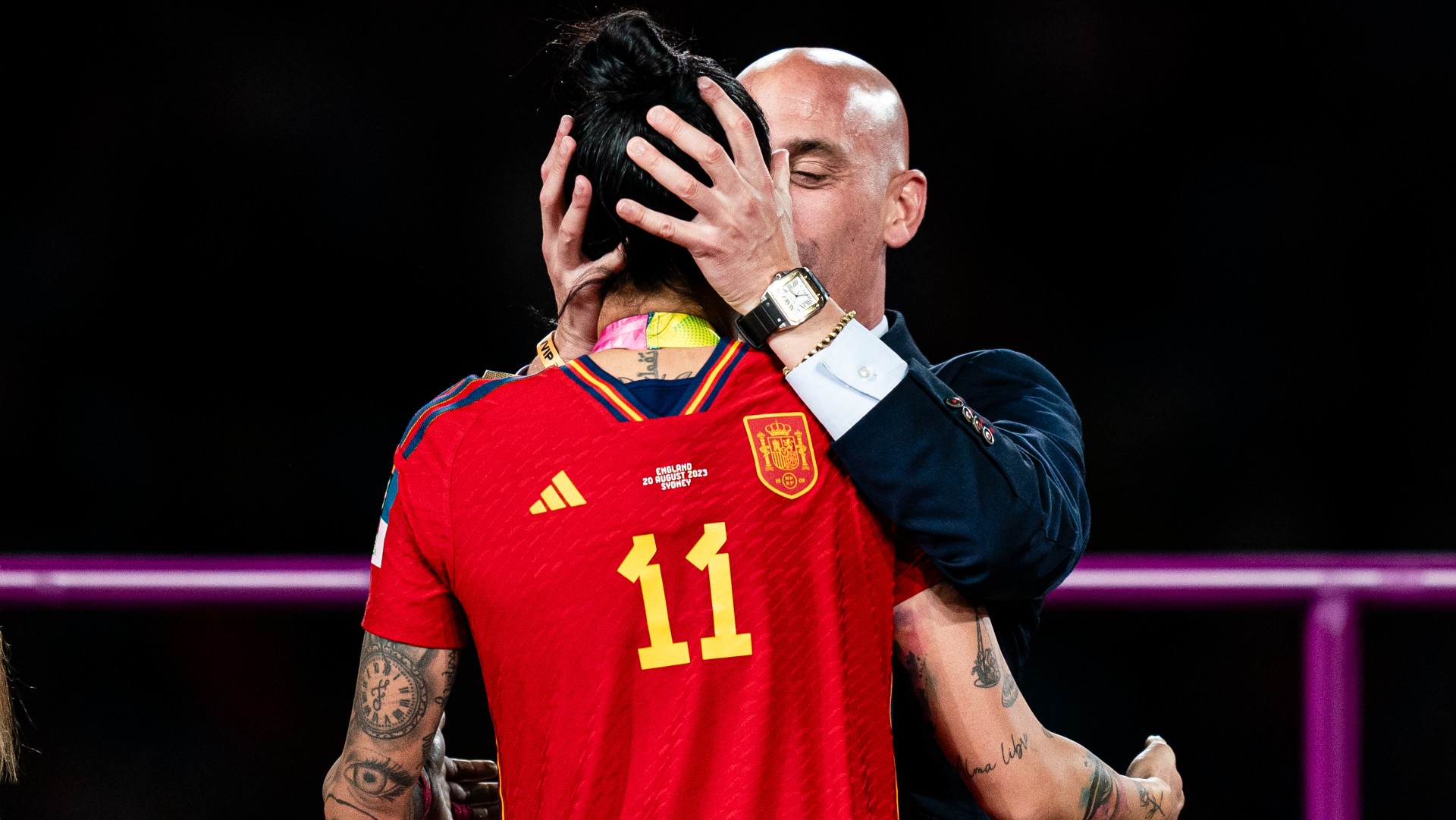
A free daily email with the biggest news stories of the day – and the best features from TheWeek.com
You are now subscribed
Your newsletter sign-up was successful
A “non-consensual” kiss at the Women’s World Cup football final has sparked global outrage and reignited debate over the enduring culture of machismo in Spain despite advances in gender equality.
Luis Rubiales, president of the Spanish football federation (RFEF), grabbed Spain’s Jenni Hermoso during the medal ceremony after the 1-0 win over England. As she approached Rubiales, he hugged her and then put both hands around her head before kissing her on the mouth.
Rubiales, 46, claims he had consent to do so, but Hermoso, 33, denied this, saying she was “the victim of aggression”. She described his actions as an “impulse-driven, sexist, out-of-place act without any consent”. The incident “has set off a mutiny and overshadowed the team’s triumph”, wrote Rebecca Myers for The Times, and become “a lightning rod for anger about the treatment of women in football”.
The Week
Escape your echo chamber. Get the facts behind the news, plus analysis from multiple perspectives.

Sign up for The Week's Free Newsletters
From our morning news briefing to a weekly Good News Newsletter, get the best of The Week delivered directly to your inbox.
From our morning news briefing to a weekly Good News Newsletter, get the best of The Week delivered directly to your inbox.
‘Mutual, euphoric and consensual’
The RFEF, which chose to back Rubiales and threaten legal action against those criticising his conduct, called the presidents of its regional federations to an “extraordinary and urgent” meeting, said the Evening Standard. The local officials decided that Rubiales should “immediately present his resignation” because of ���the unacceptable behaviours”, although he has so far refused to do so.
Fifa, the governing body of world football, announced on Friday that Rubiales was provisionally suspended from all football activity for 90 days while it conducts a disciplinary investigation. And Spanish prosecutors have announced a preliminary investigation into whether he could be charged with a sexual offence.
Meanwhile, hundreds of protesters gathered in Madrid, said Sky News, chanting: “It’s not a kiss, it is aggression.” Social media users posted about mistreatment of women with the hashtag #SeAcabó (“it’s over”). More than 80 current and former Spain players said they would not play until Rubiales resigns. “This should be the MeToo moment for Spanish football,” Víctor Francos, the secretary of state for sport, said.
To “widespread incredulity”, the Spanish federation initially “stuck with Rubiales”, said Myers for The Times, and issued a statement implying that Hermoso’s words, in which she said the kiss was in no way consensual, were lies. That was “greeted with outrage”, with all members of Spain manager Jorge Vilda’s coaching staff resigning in solidarity, except Vilda himself.
A free daily email with the biggest news stories of the day – and the best features from TheWeek.com
“The scandal escalated further,” said CNN, when Rubiales made a “defiant” speech at the federation’s extraordinary meeting on Friday. He claimed he was the target of “social assassination” and “false feminism”, and that the kiss was “mutual, euphoric and consensual”.
In a further twist, Rubiales’s mother has reportedly locked herself in a church and begun a hunger strike over the “inhuman and bloody hunt” against her son. Angeles Béjar told news outlet EFE she would stay in the Divina Pastora church, in the southern town of Motril, until the situation was resolved. She called on Hermoso to “tell the truth”, saying there was “consent on both sides”.
‘This time was different’
“Rubiales appeared to believe he could pitch his word and honour against those of a young woman and win,” wrote James Baldock for The Telegraph, but recent “feminist victories” in Spain mean that “such formerly safe ground for men in positions of power has vanished”.
Spain’s political forces have shown “rare unanimity in asking for the RFEF leader’s head”. “Only Rubiales and his cronies at RFEF seemed incapable of seeing that Spain has changed and the days of testosterone-fuelled hypermasculine leadership are done.”
#SeAcabó was “a long time coming”, agreed María Ramírez in The Guardian. But in Spain, “we never saw with #MeToo what we are now seeing with #SeAcabó”.
“This time was different”, with male footballers, coaches and sponsors speaking out in support of the women’s team. Spanish society has also changed since 2017, with more informed journalists and gender laws that are “among the most advanced in the West”. And this group of women were, in victory, “finally powerful enough to speak up and be really heard”.
Harriet Marsden is a senior staff writer and podcast panellist for The Week, covering world news and writing the weekly Global Digest newsletter. Before joining the site in 2023, she was a freelance journalist for seven years, working for The Guardian, The Times and The Independent among others, and regularly appearing on radio shows. In 2021, she was awarded the “journalist-at-large” fellowship by the Local Trust charity, and spent a year travelling independently to some of England’s most deprived areas to write about community activism. She has a master’s in international journalism from City University, and has also worked in Bolivia, Colombia and Spain.
-
 The ‘ravenous’ demand for Cornish minerals
The ‘ravenous’ demand for Cornish mineralsUnder the Radar Growing need for critical minerals to power tech has intensified ‘appetite’ for lithium, which could be a ‘huge boon’ for local economy
-
 Why are election experts taking Trump’s midterm threats seriously?
Why are election experts taking Trump’s midterm threats seriously?IN THE SPOTLIGHT As the president muses about polling place deployments and a centralized electoral system aimed at one-party control, lawmakers are taking this administration at its word
-
 ‘Restaurateurs have become millionaires’
‘Restaurateurs have become millionaires’Instant Opinion Opinion, comment and editorials of the day
-
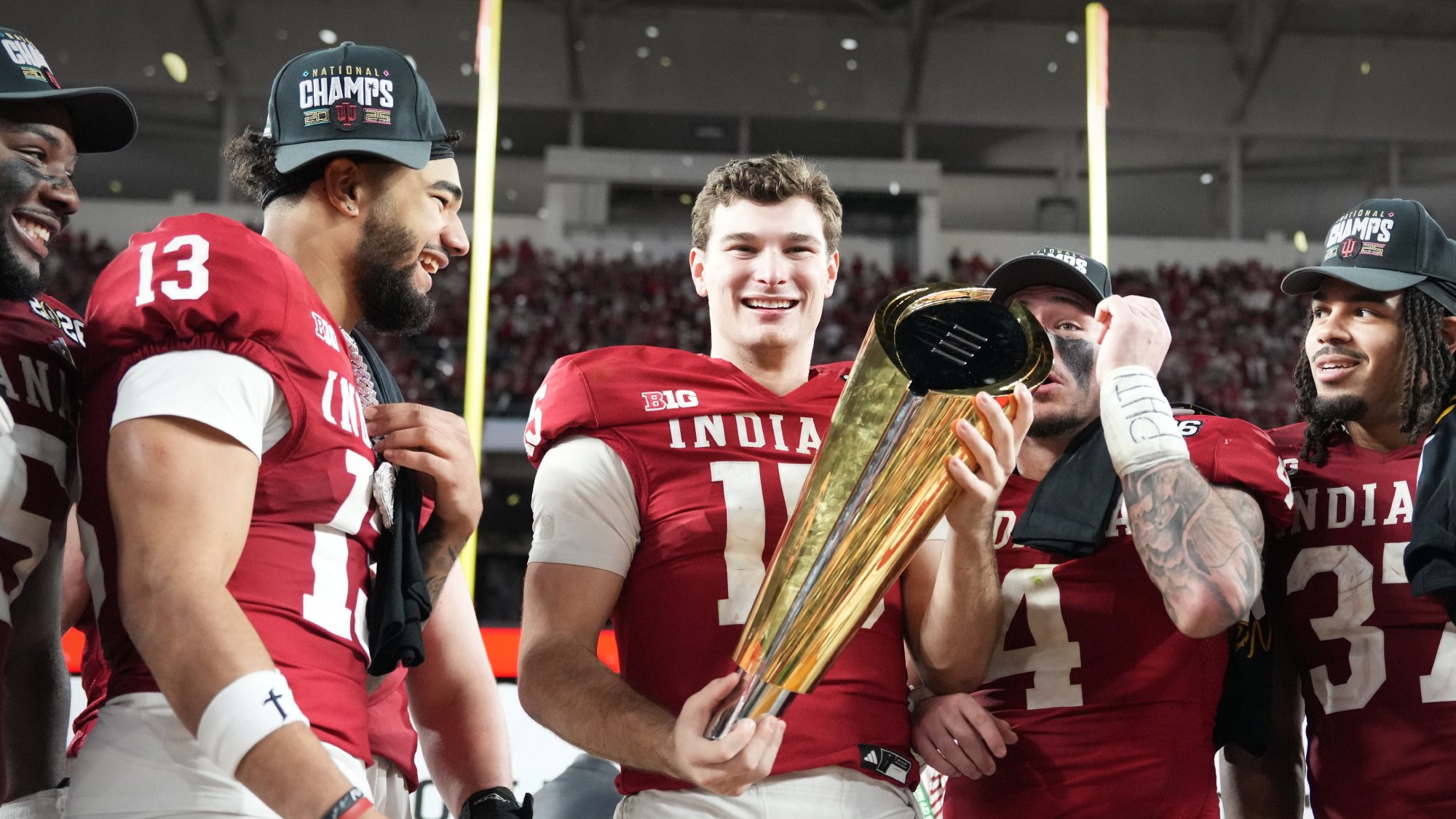 Indiana beats Miami for college football title
Indiana beats Miami for college football titleSpeed Read The victory completed Indiana’s unbeaten season
-
 Who is to blame for Maccabi Tel Aviv fan-ban blunder?
Who is to blame for Maccabi Tel Aviv fan-ban blunder?Today’s Big Question MPs call for resignation of West Midlands Police chief constable over ‘dodgy’ justification of ban from Aston Villa match, but role of Birmingham Safety Advisory Group also under scrutiny
-
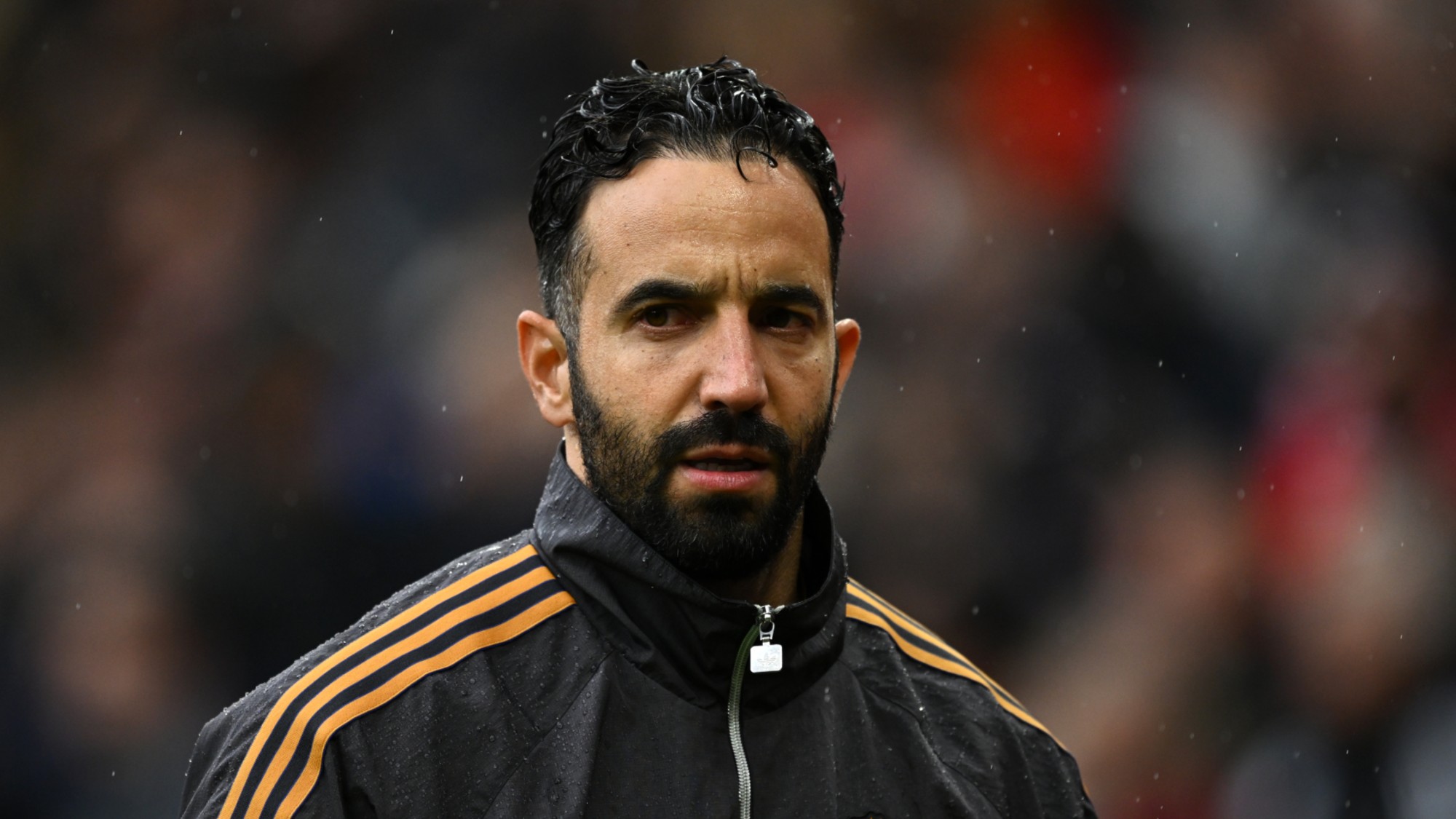 Amorim follows Maresca out of Premier League after ‘awful’ season
Amorim follows Maresca out of Premier League after ‘awful’ seasonIn the Spotlight Manchester United head coach sacked after dismal results and outburst against leadership, echoing comments by Chelsea boss when he quit last week
-
 Coaches’ salary buyouts are generating questions for colleges
Coaches’ salary buyouts are generating questions for collegesUnder the Radar ‘The math doesn’t seem to math,’ one expert said
-
 Five years after his death, Diego Maradona’s family demand justice
Five years after his death, Diego Maradona’s family demand justiceIn the Spotlight Argentine football legend’s medical team accused of negligent homicide and will stand trial – again – next year
-
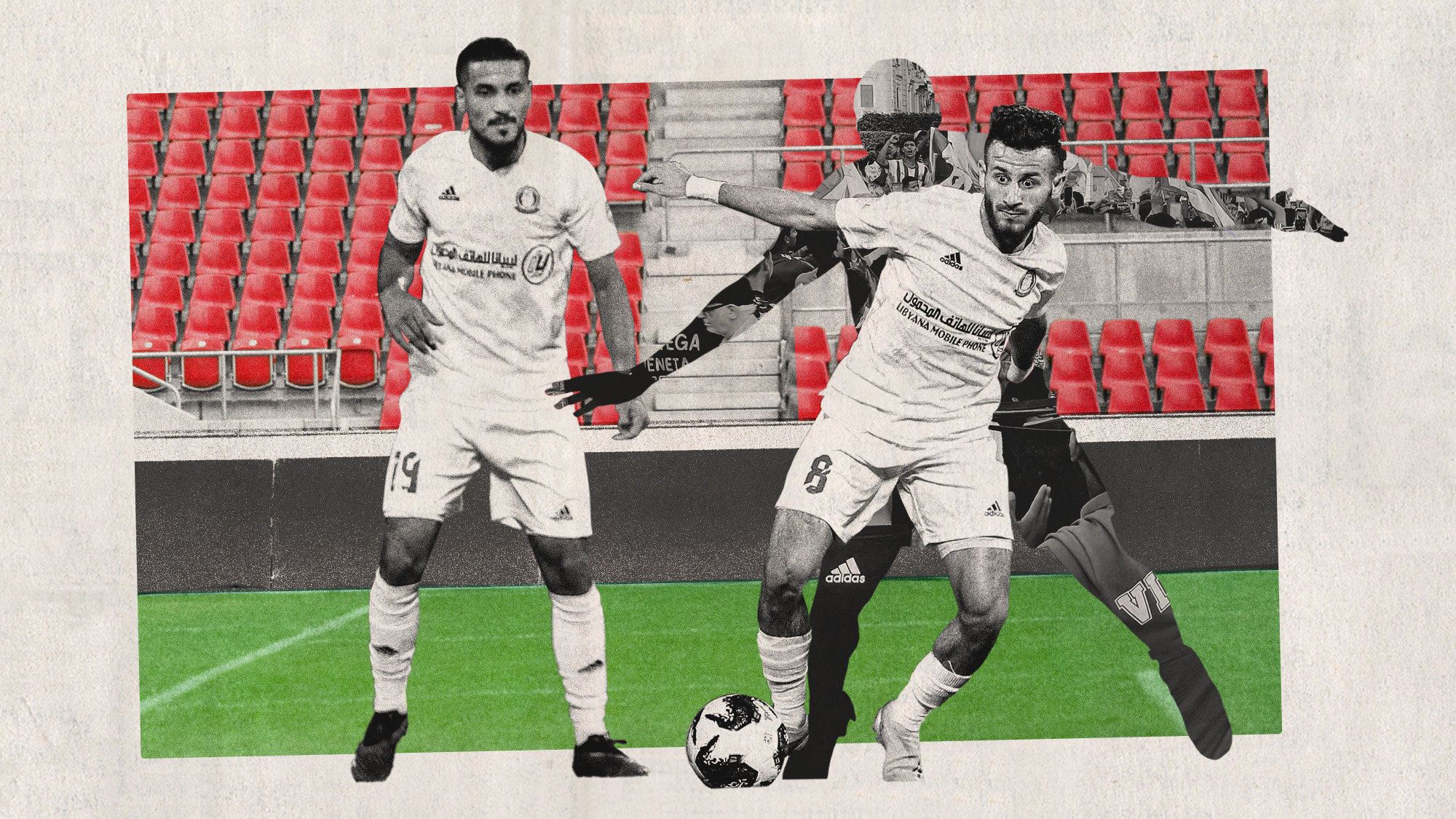 Libya's 'curious' football cup, played in Italy to empty stadiums
Libya's 'curious' football cup, played in Italy to empty stadiumsUnder The Radar 'Curious collaboration' saw Al-Ahli Tripoli crowned league champions in Milan before a handful of spectators
-
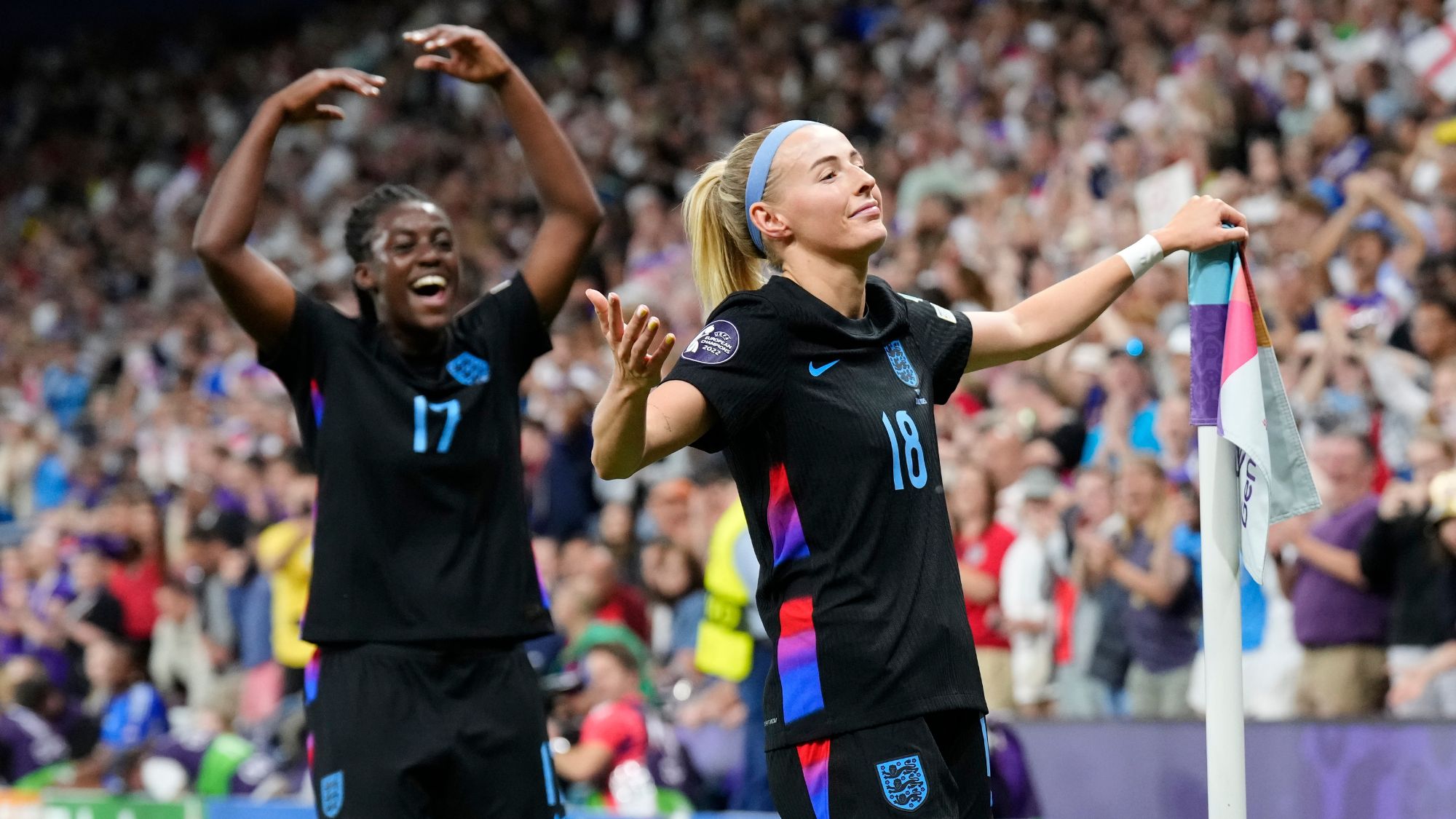 Crisis? What crisis? How Lionesses made the Euros final against the odds
Crisis? What crisis? How Lionesses made the Euros final against the oddsAmid injuries and questions about form, England's women are one step away from glory
-
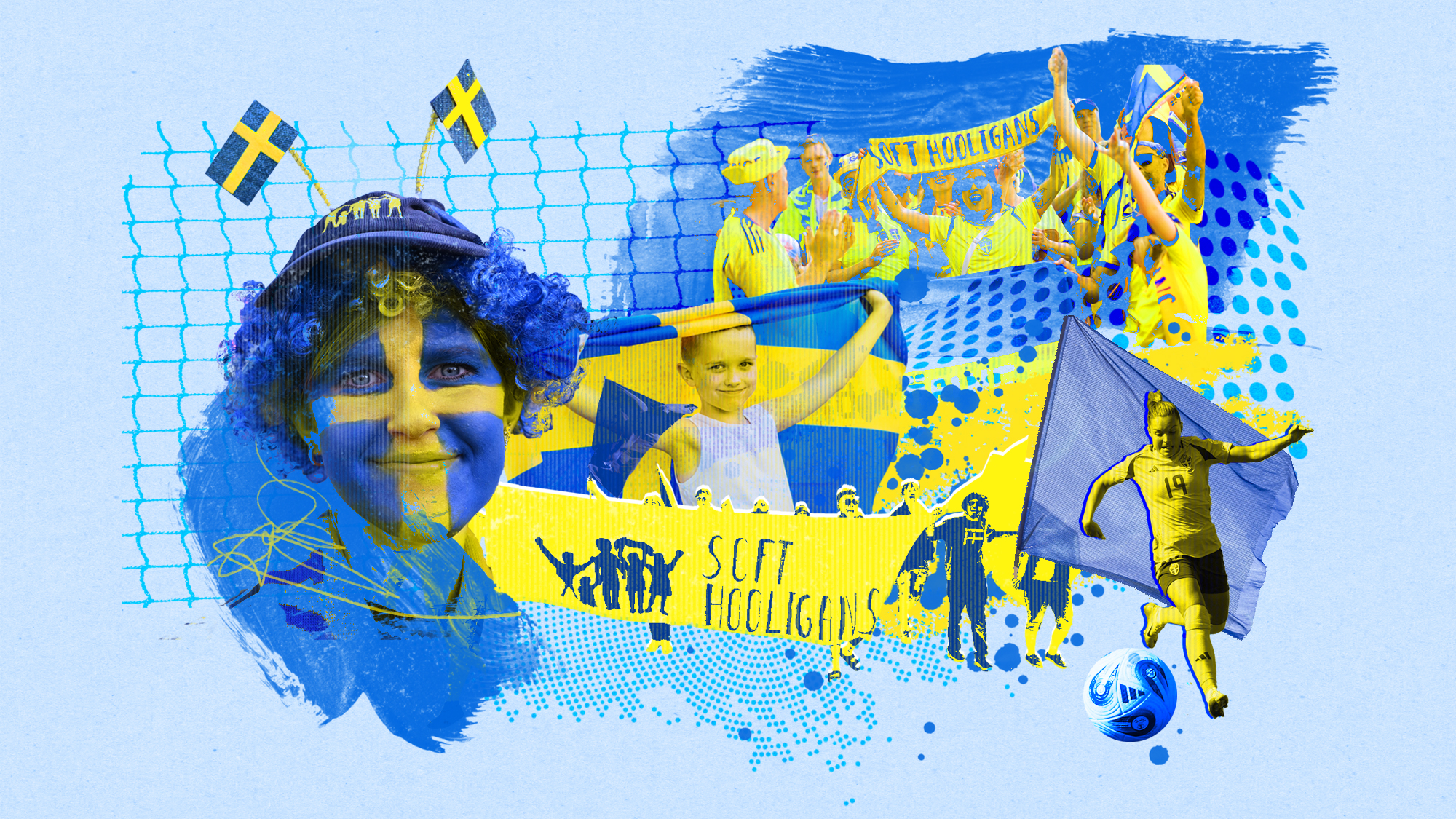 Sweden's Soft Hooligans: the fans who brought 'good vibes' to the Euros
Sweden's Soft Hooligans: the fans who brought 'good vibes' to the EurosUnder the Radar Formed to create a fun fan atmosphere, the Swedish football supporter group has been bringing the party to the championship